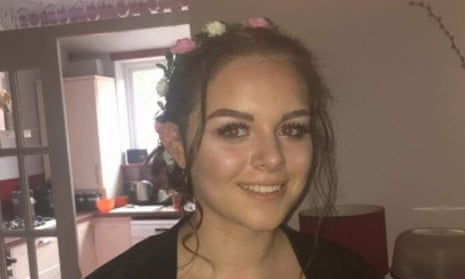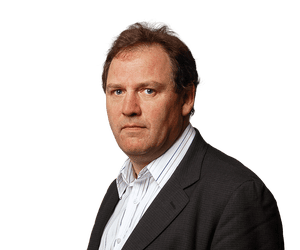Latest coverage continues on our new live blog:
Soldiers on British streets as threat level raised to critical – as it happened
- This live blog is closed. Follow our latest coverage of the Manchester Arena bombing here
- Full report: Soldiers on UK streets as threat raised to critical
- Salman Ramadan Abedi named by police as Manchester Arena attacker
- ‘Go sing with the angels’: families and friends pay tribute to Manchester victims
Wed 24 May 2017 00.15 EDT
First published on Mon 22 May 2017 18.37 EDT- What we know so far
- Olivia Campbell confirmed to have died
- Kelly Brewster named as victim
- Killer had recently visited Libya – reports
- Salman Abedi pictured
- Threat level raised to critical
- Police find CCTV video of bomber
- Bomber named by police
- Injured had metal bolts in their bodies
- Controlled explosion in Fallowfield, south Manchester
- Twelve children among the wounded
- Isis claims responsibility
- Saffie Rose Roussos, aged eight, is second victim to be named
- Summary
- Armed officers in riot gear raid flat in Whalley Range
- Queen issues statement
- First victim named
- Arndale centre reopened
- First arrest
- Theresa May's statement - summary
- Manchester's Arndale Centre evacuated
- Theresa May's statement
- Burnham announces vigil in Manchester
- Trump: 'wicked ideology must be obliterated'
- Trump expresses solidarity with UK
- Merkel: 'shoulder to shoulder with UK'
- Security reviewed in London
- What we know so far
- Mayor Andy Burnham: 'This was an evil act'
- Police: full statement
- Police: children have died
- Police: sole attacker died at scene
- Death toll rises to 22
- Manchester attack: eyewitnesses
- All election campaigning suspended
- What we know so far
- Ariana Grande: 'I don't have words'
- Greater Manchester chief constable: full statement
- Police press conference
- What we know so far
- Theresa May statement
- Full police statement
- Manchester suspected terror incident: what we know so far
- 19 people have died, police confirm
- Police treating as possible terrorist attack
- Ambulances head towards arena
- 'Number of fatalities' in Manchester incident

Live feed
- What we know so far
- Olivia Campbell confirmed to have died
- Kelly Brewster named as victim
- Killer had recently visited Libya – reports
- Salman Abedi pictured
- Threat level raised to critical
- Police find CCTV video of bomber
- Bomber named by police
- Injured had metal bolts in their bodies
- Controlled explosion in Fallowfield, south Manchester
- Twelve children among the wounded
- Isis claims responsibility
- Saffie Rose Roussos, aged eight, is second victim to be named
- Summary
- Armed officers in riot gear raid flat in Whalley Range
- Queen issues statement
- First victim named
- Arndale centre reopened
- First arrest
- Theresa May's statement - summary
- Manchester's Arndale Centre evacuated
- Theresa May's statement
- Burnham announces vigil in Manchester
- Trump: 'wicked ideology must be obliterated'
- Trump expresses solidarity with UK
- Merkel: 'shoulder to shoulder with UK'
- Security reviewed in London
- What we know so far
- Mayor Andy Burnham: 'This was an evil act'
- Police: full statement
- Police: children have died
- Police: sole attacker died at scene
- Death toll rises to 22
- Manchester attack: eyewitnesses
- All election campaigning suspended
- What we know so far
- Ariana Grande: 'I don't have words'
- Greater Manchester chief constable: full statement
- Police press conference
- What we know so far
- Theresa May statement
- Full police statement
- Manchester suspected terror incident: what we know so far
- 19 people have died, police confirm
- Police treating as possible terrorist attack
- Ambulances head towards arena
- 'Number of fatalities' in Manchester incident
What we know so far

- Soldiers are to be deployed on Britain’s streets after the threat level was raised from severe to critical, meaning officials believe another terrorist attack may be imminent.
- The move came in the wake of the suicide bombing of Manchester Arena, which killed 22 people and injured 59 more.
- The perpetrator has been identified as Salman Abedi, 22, a Mancunian of Libyan descent. He walked into the lobby of the arena on Monday evening as thousands of people were exiting an Ariana Grande concert, detonating an improvised device that murdered and maimed many.
- Among those he killed were eight-year-old Saffie Rose Roussos; Georgina Callander, 18; and John Atkinson, 26.
- Overnight, the names of two more victims have been revealed: Kelly Brewster, 32, and Olivia Campbell, who was 15. Her mother Charlotte Campbell paid tribute to her “darling precious gorgeous girl”.

- Several people remain missing, many of them teenagers, with family and friends continuing to share their names and pictures on social media.
- In messages posted online, Islamic State claimed responsibility for the attack, but this has not been confirmed by officials investigating the blast. There are reports today that Abedi had recently returned from a trip to Libya.
- A 23-year-old man was arrested on Tuesday morning in south Manchester, and is believed to be Ismael Abedi, the brother of the perpetrator.
- All parties have suspended campaigning for the 8 June general election.
- The prime minister, Theresa May, condemned the attack as:
appalling, sickening cowardice, deliberately targeting innocent, defenceless children and young people who should have been enjoying one of the most memorable nights of their lives.
- A vigil held in Manchester’s Albert Square on Tuesday evening drew thousands in solidarity with those killed and wounded.


The mayor of Paris, Anne Hidalgo, whose city faced a series of terrorist attacks in 2015, has sent her condolences to Manchester and urged people to stand firm against terrorism.
Hidalgo was one of the first to respond to news of the attack at an Ariana Grande concert on Monday evening, which brought back painful memories of the carnage she saw first-hand at Paris’s Bataclan music hall.
She told the Guardian her heart went out to the people of Manchester:
First I want to send my affection … this is such a terrible moment, an attack on youngsters, adolescents out having fun, enjoying themselves. My thoughts go to those parents who have lost children or someone close to them and for whom the physical and psychological consequences are so heavy.
Parisians, who have suffered attacks, know the horrors into which the people of Manchester are plunged and know how it helps to have messages of affection and support to enable them to raise their heads, to stand strong and to carry on. We received many messages from all over the world and I can tell you this feeling of solidarity and support really helped. What is also important after such events is also for people to feel secure and protected.
The The Empire State Building and the Eiffel tower went dark at midnight, in solidarity with the victims of the Manchester attack.

Landmark buildings around the UK and the world also paid tribute, with London’s Wembley stadium lighting up “for Manchester” and the HSBC building in Hong Kong displaying a sign saying “we stand with the United Kingdom”. The Brandenburg Gate, Florida’s Orlando Eye and Dubai skyscrapers were turned red, white and blue.
The Manchester-born singer Morrissey has hit out at politicians for their reaction to the bombing in his hometown that has killed 22 people and hospitalised 59 more.
The former Smiths frontman claimed that politicians are safe from attacks, while the rest of the country is left vulnerable. The MP Jo Cox was murdered by a rightwing extremist last June.
Morrissey cited government immigration policy among his complaints, saying the prime minister would never change her immigration policy in the light of the attacks. It is believed that the bomber named by police, Salman Abedi, was British-born and from Manchester.
Morrissey also appeared to suggest that politicians were afraid to refer to Abedi as an Islamist extremist.
The claim that politically-correct leaders routinely refuse to mention Islam when referring to terror attacks carried out by people holding a violent interpretation of the religion is common on the far-right. In recent years, many politicians have acknowledged the role of such an ideology once it has been confirmed, while also stressing that it is alien to the vast majority of the religion’s adherents.
“In modern Britain everyone seems petrified to officially say what we all say in private,” the singer wrote on his Facebook page. “Politicians tell us they are unafraid, but they are never the victims. How easy to be unafraid when one is protected from the line of fire. The people have no such protections.”
Most of Wednesday’s UK newspaper front pages feature images of those killed or missing after the attack. Some also feature the perpetrator, Salman Abedi, with the Sun showing his picture prominently alongside that of Saffie Rose Roussos, the eight-year-old he murdered.
Here’s our roundup of how the press has covered the aftermath:

The decision to raise the official threat level to critical and to deploy troops under Operation Temperer, meaning that an attack is expected imminently, is the first time for a decade that it has been set at its highest level.
The last time troops under Operation Temperer were deployed was immediately after the terrorist attacks in Brussels last year. But they were only used covertly as backup for the visible armed police presence at railway stations and airports.
It means that up to 5,000 armed troops can be deployed at transport hubs and other crowded public places in order to release the armed police for other duties.
The threat level has only twice before been raised to critical since the system of official threat levels was introduced in 1 August 2006. It was raised for three days from 10 August 2006 at the time of the transatlantic airliner plot, and on 30 June 2007 when the security services uncovered the plot to bomb a nightclub on London’s Haymarket. This was a plot that culminated in the attack on Glasgow airport.
A man has been arrested by counter-terrorism police at Stansted Airport tonight, but the Metropolitan police said it was not connected to the Manchester attack.
The 37-year-old man was stopped before boarding a flight to Turkey on suspicion of preparing for acts of terrorism, according to a Met statement:
The man has been taken to a south London police station where he is being detained under the Terrorism Act.
Officers are now searching two residential addresses in north London.
This arrest is linked to travel to Syria.
Olivia Campbell confirmed to have died
Olivia Campbell, 15, who has been missing since the blast, has died, her mother has confirmed.
The teenager was the subject of a massive social media campaign to find her after she could not be contacted in the wake of the explosion.
Her mother Charlotte Campbell spoke to the media yesterday about her desperate attempts to make contact with her daughter:
I’m at home phoning everybody: hospitals, police, the centres that the children have been put in. Her dad’s in Manchester looking for her. I’ve got friends looking for her. I’ve got people I don’t even know looking for her, people messaging me, saying we’ve got her photo, looking for her, we’ll get in contact if we see her. And I’m just hearing nothing. Her phone’s dead…
They’ve basically told me to stay put and wait for a phone call. I daren’t leave the house just in case she somehow gets home.
In the last hour, Charlotte Campbell confirmed that Olivia had died, in a public Facebook post dedicated to “my darling precious gorgeous girl”.

Greater Manchester police has said the upping of the threat level to critical will aid its ongoing investigation into the attack.
In an overnight statement, deputy chief constable Ian Pilling said:
This is a fast-moving investigation and we continue to have significant resources in place.
Raising the threat level to critical, which has been announced by the prime minister this evening, will support our ongoing investigation.
People across Greater Manchester have seen an increased police presence throughout the day and this will continue. They will be seen at key locations across the region.
We are continuing to work with the national counter-terrorism policing network and UK intelligence services as part of the response to dealing with the tragic events that took place 24 hours ago.
We would ask people to remain vigilant as they have been throughout the day and report anything in confidence to the anti-terrorist hotline on 0800 789321 or in an emergency 999.
People have shown tremendous strength and resilience throughout the day and we need this to continue in the difficult days ahead.